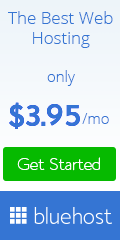Satellite connection is a significant source of getting internet services in rural areas. The other service providers hardly cover any rural areas due to higher costs of expansion and low returns than cities. The further you move down towards the countryside, the harder it will be to get a wired internet connection like DSL or Coaxial Cable.
Although satellite internet cannot be said as the best internet connection available, it’s good to have internet services and stay connected remotely.
There is not much of a competition when it comes to satellite internet services. Only two major service providers offer services nationwide through the satellite connection and offer good speeds for customers. These two service providers are HughesNet and Viasat.
These service providers provide different value addition for their customers. Generally, they provide a tough competition where it is not easy for customers to decide on which one to go with.
If you are facing a similar situation, this guide will make this decision easier for you. We will compare factors like plans, prices, availability, and some more and see which provider beats the other.
Viasat VS HughesNet

Table of Contents
1. Plans
When it comes to service plans, HughesNet offers four different service plans based on the provided data. All these plans provide the same download speed of up to 25 Mbps, so the data plan choice would determine whether you will get a smooth connection or reduce your rates before the month-end.
HughesNet has options of 10, 20, 30, and 50 GB of data plans for customers to choose the best plan as per their needs while signing up.
Moreover, if you would like to make any changes after signing up, you can call Hughesnet customer service number 1-855-771-3154 and do so.
On the Other hand, Viasat offers various plans where there are options for both different speeds and different data. The download speeds start at 12 Mbps and go up to 100 Mbps while the data caps begin at 12 GB and go up to 300 GB per month.
However, not all the plans are available in all areas. This means you might be paying more with Viasat for a lower speed or a service while someone else might be getting a double rate at the same price with more data.
2. Pricing
Since HughesNet offers four data plans with the same speeds, the pricing is not complicated. Customers can get the 10 Gig plan for $49.99, 20 Gig for $59.99, 30 Gig for $99.99, and 50 GB plan for $149.99.
These are the regular prices for HughesNet Internet. However, you can also get a price discount of $10 for the first six months if there is a promotion going on in your area.
With Viasat, prices start at $30 per month for the Liberty 12 plan that offers 12 Mbps download speed with 12 GB data. After that, there are various plans available with the same speed and more data or more speeds.
The Platinum 100 plan offers a download speed of up to 100 Mbps, and a data cap of 300 GB costs $150 per month. But keep in mind that these are promotional prices for the first three months, after that, the same plan will cost $200 per month.
3. Availability
From the availability of services, HughesNet offers services in all 50 states of America with more excellent rural areas coverage. Similarly, Viasat also covers all the states, and availability is 98% of the US.
So, both service providers have more generous coverage and serve almost all of the united states as long as the satellite dish can get a clear signal.
4. Cost of Equipment and Installation
Since satellite internet equipment is expensive, both service providers charge a considerable amount if someone wants to buy the equipment. With HughesNet, the cost of purchasing the satellite dish and the modem is $249.99, a one-time charge.
Similarly, Viasat charges an amount of $299.99 for buying the equipment. Keep in mind that the cost of installation would be on top.
However, there are options to lease the equipment every month. If you lease equipment from HughesNet, it costs $14.99 per month while the installation is free as well.
On the other hand, Viasat charges $10 per month for leasing the equipment. So, it is best to go for renting the equipment instead of purchasing it upfront.
Final Verdict | Viasat VS Hughesnet
HughesNet and Viasat are the right service providers. However, both have their pros and cons. For instance, HughesNet basic plans are affordable but do not offer sufficient data while the Viasat plans that adequate offer data are not cheap.
The best thing to do before choosing any service provider would be to finding out what you need. After that, you can make the decision about which service provider to go with.
Tech India Today
Related posts
Recent Posts
- How Important is Competitor Analysis? November 13, 2023
- Securing the Internet of Things: A Growing Concern October 2, 2023
- When DevSecOps Shines: Reinventing Software Development May 17, 2023
- Implementing Infrastructure As Code (IaC) With DevOps April 21, 2023
- What Can You Gain By Choosing a Reputable HVAC Software Solution? March 19, 2023
Categories
- Artificial Intelligence (AI) (18)
- Augmented Reality (AR) (5)
- Automotive (7)
- Blockchain (2)
- Business (45)
- Career (4)
- Cloud Computing (6)
- Computers (4)
- Content Management System (1)
- Cryptocurrency (1)
- Cybersecurity (7)
- Data Science (1)
- Digital Marketing (32)
- E-commerce (1)
- Education (6)
- Electronics & Hardware (10)
- Entertainment (5)
- Finance (9)
- Gadgets (23)
- Games (3)
- HTTP (3)
- Industry (2)
- Infographics (3)
- Internet (138)
- Internet of Things (IoT) (22)
- Job (3)
- Lifestyle (2)
- Machine Learning (7)
- Marketing (45)
- Marketplace (2)
- Mobile Apps (20)
- Natural Language Processing (2)
- Network (15)
- News & Trends (15)
- Operating System (OS) (6)
- Programming (10)
- Robotic Process Automation (RPA) (13)
- Security (19)
- SEO (24)
- Social Media (29)
- Software (35)
- Tech India Today (1)
- Technology (166)
- Virtual Reality (VR) (2)
- Web Apps (12)
- WordPress (1)
- Workflow (2)
- Workforce (2)
- Workplace (1)
- Workspace (1)


